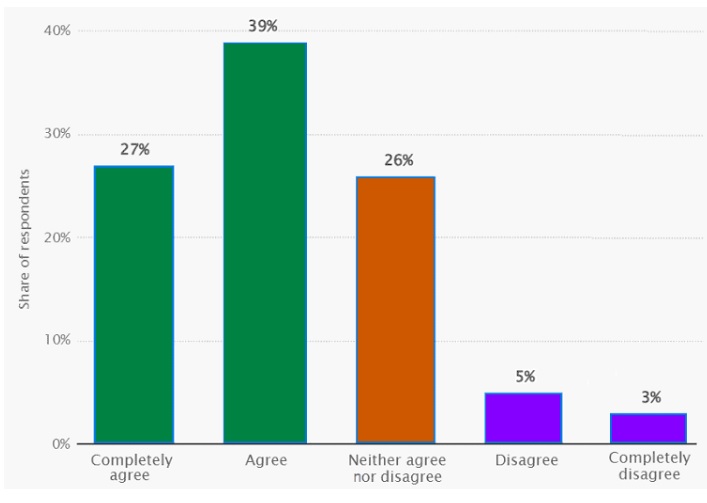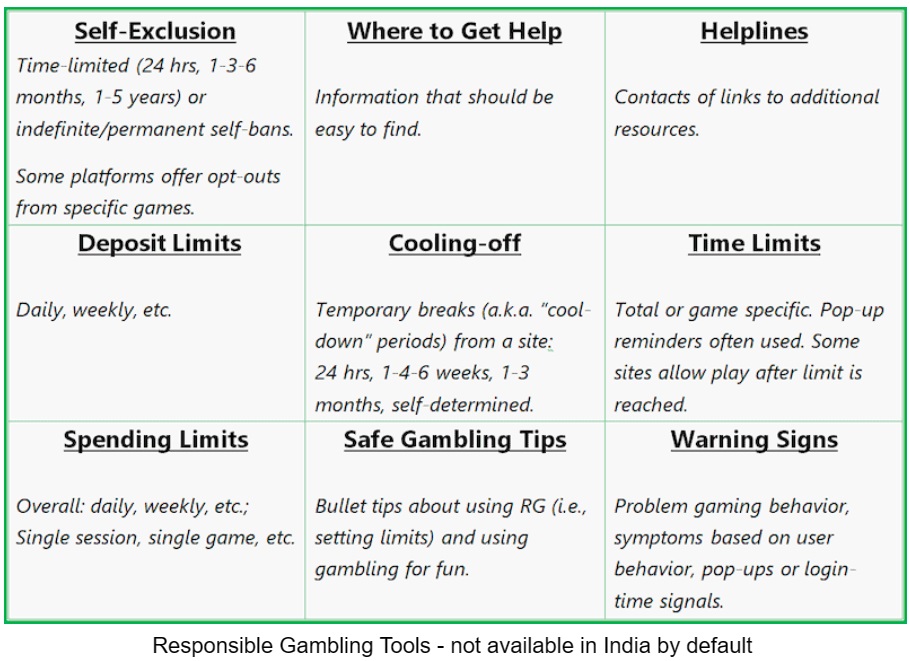Gambling has transformed into a global phenomenon, with online casinos and sports betting platforms gaining immense popularity. However, alongside this growth comes the need to address the importance of responsible gaming and raise awareness about the tools available to protect players.
In this context, recent data from Seven Jackpots, a leading Indian online casino comparison and analytics platform, provides valuable insights into the use of responsible gaming tools and the expectations of players in regulated markets.
The Most Common Tools
According to research conducted by SevenJackpots, there is a clear correlation between the use of safe gaming tools and the prevalence of problem gamblers in most gambling markets worldwide. These tools, also known as responsible gambling tools, have become mandatory policies in countries that have regulated gambling activities.
Recent operator data from Brazil reveals that 2.1% of players have chosen to self-exclude or permanently close their accounts, while an additional 0.4% are utilizing temporary cool-off periods. These statistics underscore the importance of these tools in safeguarding players and promoting responsible gaming practices.
This Many Self-Exclude Their Accounts in Different Markets
In Sweden, a country with a population of 10 million, over 80,000 individuals have opted to self-exclude themselves from engaging in gambling activities. This number exceeds the estimated count of problem gamblers in the country. Generally, mature gambling markets exhibit problem gambling rates ranging from 0.5% in Sweden to 3.3% in Canada among active gamblers.
However, in countries like India, where gambling is largely prohibited, the problem gambling rate escalates to a staggering 7.2% of all gamblers. These variations highlight the pressing need for responsible gaming awareness and tools in both regulated and non-regulated markets.

Two Thirds Expect Responsible Gaming Tools
The comprehensive study conducted by SevenJackpots has unveiled that two-thirds of players in mature and regulated gambling markets expect a certain degree of social responsibility from the games they partake in. The study indicates that 66% of respondents believe that the level of social responsibility displayed by gaming platforms influences their choice of games.
Effective responsible gaming policies prioritize raising risk awareness, creating a safe gaming environment, and providing assistance to those in need. The widespread acceptance of responsible gaming practices by a majority of players underscores the significance of implementing these measures throughout the industry.
Awareness is Key
One of the significant challenges faced by non-regulated markets is the low level of awareness surrounding responsible gambling mechanisms and their proper usage. Informing and educating the public about the potential risks associated with gambling and betting, as well as the available tools for self-protection, are fundamental components of any comprehensive effort to address gambling-related problems on a national scale.
Another practical hurdle is the misconception that responsible gaming tools and policies are exclusively intended for individuals who have already developed gambling addictions or other issues, or are considered vulnerable to risk. This misconception must be dispelled, as it prevents individuals who do not recognize the sensitivity of these issues or misjudge their own circumstances from seeking guidance and utilizing responsible gaming tools effectively. The research paper emphasizes that responsible gaming tools and policies are designed for general consumption, with a primary focus on prevention rather than solely offering support and treatment to those already grappling with gambling-related problems.

Promoting Responsible Gaming for a Safer Future
The data collected by Seven Jackpots and the insights derived from their research provide valuable guidance on the importance of spreading awareness about responsible gaming practices and the utilization of safe gaming tools. Responsible gambling tools play a critical role in protecting players and preventing the development of gambling-related issues. The research also highlights the expectations of players in mature markets, where a significant majority expresses a desire for social responsibility from gaming platforms. By prioritizing responsible gaming, industry stakeholders can foster a safer and more enjoyable gaming experience for all participants.
In summary, responsible gaming is an essential aspect of the gambling industry. It is imperative to raise awareness about the available tools and policies to promote responsible gambling practices. By embracing responsible gaming principles, operators can protect players, demonstrate social responsibility, and contribute to a sustainable and thriving gambling environment.

















